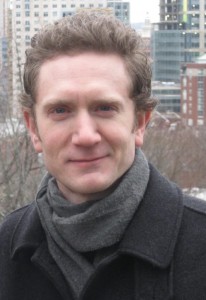
One of the many benefits of UConn’s Service-Learning classes is the professional development opportunities it offers for the students involved.
Ph.D. first-year student, William Tootle, is the ideal example of just that. It all began in the fall 2011 semester when he enrolled in the Applied Anthropology course for Graduates, taught by Dr. Merrill Singer.
Service-Learning courses that are held throughout the University are part of a major academic initiative which integrates meaningful services identified by the community, while reinforcing course theory and curriculum. For this Service-Learning course, the community partner was Family Life Education, a non-profit organization located in Hartford.
“FLE works with youth, emergent adults, and young families to build a healthy community, enhance family stability, and promote the health and well-being of children and youth through direct, culturally appropriate community-based services,” explained Dr. Singer, a cultural and medical anthropologist with a dual appointment at UConn as a professor in the Department of Anthropology and as a Senior Research Scientist at the Center for Health, Intervention, and Prevention.
The seven graduate students in the course worked with FLE for the length of the semester, with a goal of addressing the issue of childhood obesity through exercise and nutritional training for their parents.
But one student in particular made a professional connection with FLE, which resulted in a summer internship for him.
Tootle has an interest as an apprentice medical anthropologist, trying to improve the health of marginalized populations. With this, he says the work he did with FLE in the internship was “even more applicable to my own research interests and professional interests.”
“What they tasked me with was to begin to put together a proposal to the U.S. Department of Health and Human Services to develop services for children who have been affected by HIV/Aids and/or substance abuse in their families,” said Tootle, adding that the idea is to develop some kinds of services that are going to ensure that substance abuse or HIV in their family isn’t going to disrupt their normal development, their social skills, their social relationships in their school and in their home, and will protect them from entering any type of foster care. He said that FLE had gotten some “pro bono” help from his internship work.
“I hope this relationship with FLE endures. It seems to be going in the right direction, as long as they can use me and I’m useful to them. I’m hopeful that we will sustain the relationship,” said Tootle, adding that the grant he worked on in the internship is still at very early stages, but hopes that he will be part of the entire process of the grant completion and approval.
“I need to see the beginning, middle, and end stages of that process. And so as long as they’re happy with my assistance, I hope they’ll let me tag along the whole way,” said Tootle.